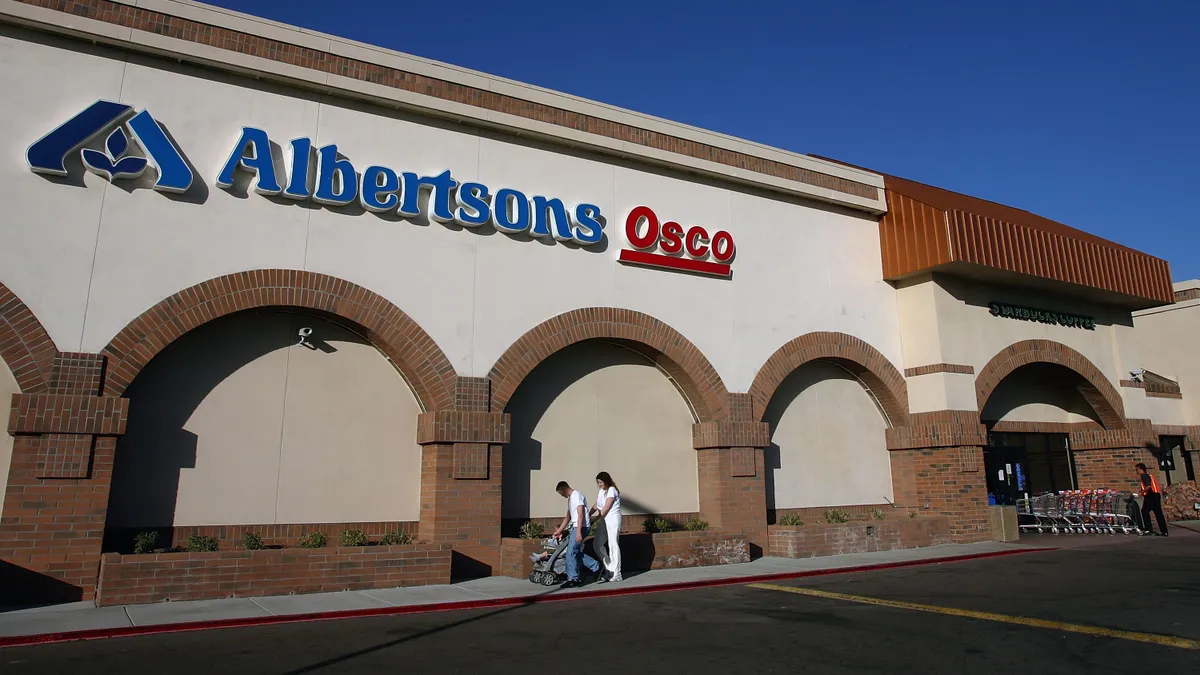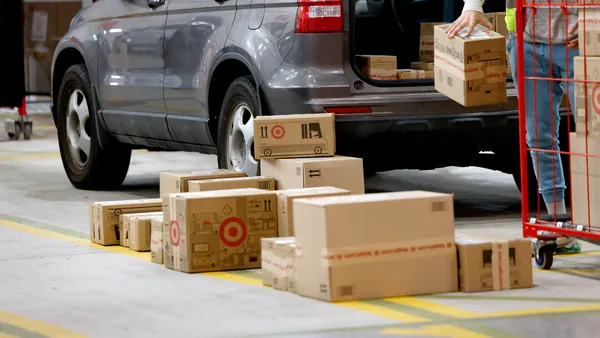Dive Brief:
- Albertsons Companies announced Tuesday it would partner with C2FO to provide diverse suppliers with access to early payments.
- "At this juncture, this special C2FO initiative is only available to diverse suppliers," Jonathan Mayes, senior vice president and chief diversity & inclusion officer at Albertsons Companies said in an email. C2FO will help "determine the best time and terms of payments" through its platform, according to the press release.
- Albertsons also said it would work with three additional companies — ECRM, RangeMe and Quantum — to improve its processes. All three new vendors will help facilitate the application process for new suppliers, though Quantum will also help analyze diverse spend and set annual targets, according to Mayes.
Dive Insight:
Initiatives to improve supplier diversity are not new to grocers, but Albertsons is among the latest of retailers to focus on improved processes as a way to tackle diversity.
C2FO inked a similar deal with Walmart and Sam's Club in early May. In a blog post announcing the change, executives at Walmart focused on the process improvements C2FO would allow.
"The simple interface, provided by technology platform C2FO, enables suppliers to hand-select the invoices they would like to request early payments on," wrote Scott McCall, chief merchandising officer at Walmart U.S., and Megan Crozier, chief merchandising officer at Sam’s Club.
Mayes said providing access to early payments will "enable diverse suppliers, which in many cases are small businesses," to have more seamless access-to-capital, which can help them grow and scale.
Improving supplier diversity is a hot topic among retailers grocers. Meijer hosted a virtual summit with diverse suppliers in May, while Target announced it would spend over $2B with black-owned suppliers by 2025.
When asked why companies should focus on supplier diversity programs, Mayes made his case:
"Supplier diversity is a proven way to increase the financial performance of your organization, attract top talent, and optimize innovation," Mayes said. "In addition to being a moral imperative, it helps ensure that a retailer’s product assortment is relevant to a broad customer base."
This story was first published in our weekly newsletter, Supply Chain Dive: Procurement. Sign up here.














